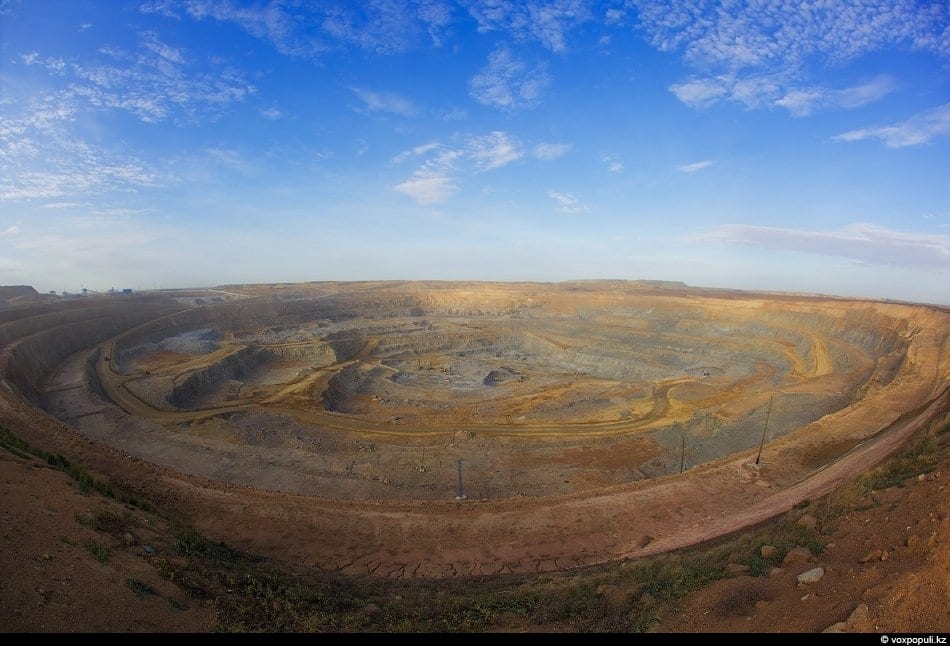Polymetal (LON: POLY) (OTCPK: AUCOY) (OTCPK: POYYF) is to move its main listing to the Kazakh stock exchange. The shares fell 25% on the news, then regained 10% the next day on further consideration. The base problem here is that we all know that Polymetal is a well-run and valuable gold miner. It’s also tied up in the varied problems of sanctions – both against Russia and from Russia. So, there’s a desperate desire to cut this Gordian Knot that prevents one of the top 10 global gold producers from being properly valued. Unfortunately, slashing at the problem like Alexander doesn’t work – a delicate threading through the problem is necessary.

Gold miners in Russia have problems
We should recall that Petropavlovsk simply went bust facing the same problems. There the problem was that they were using a local bank to finance working capital. Fair enough, in the gold business normal too. Gain a loan, send the gold produced to the bank to pay off the loan – the gold to be produced is the security for the loan. Unfortunately the bank they used was sanctioned – therefore they couldn’t deliver gold under the contract, couldn’t refinance the loan because that was illegal and, well, busteroonie.

Polymetal hasn’t faced that problem, nor anything as bad as that. They tend to export concentrate, so not affected by bans on exports of bullion. Their banking arrangements aren’t with anyone sanctioned – nor is their management or shareholder base. But still sanctions have their effect. NDS, the Russian shareholder registry, no longer speaks to Euroclear. So, it’s not possible for a Jersey company (the legal form of Polymetal) to know who in Russia owns the Moscow quoted stock. Nor pay them a dividend, which means that all other shareholders are also entirely out of luck in gaining an income. POLY has faced problems in not being allowed to use efficient and experienced international contractors and so on but that’s manageable – it causes a deterioration in results, but it’s not a killer. The US ADR programs have been killed by banks not being willing to handle the stock even though it’s legal to do so – something between reputational damage and who the hell knows how the bureaucracy will react?
It’s not just western sanctions
There are also problems within Russia. The Russian government has defined companies from certain places – Jersey included, which is, recall, the Polymetal legal structure – as being based in, hmm, enemy places. So, this causes internal to Russia restrictions. But the Polymetal business is roughly split (about 60/40) between Russian and Kazakhstan. And at current share prices a reasonable guess is that the Kazakh business alone is worth the market capitalisation. The – risky, problematic – Russian business is almost there for free.
Well, OK, so something needs to be done. There have been mutterings about splitting the business. Or listing in Abu Dhabi. But the listing itself isn’t quite the problem, it’s the legal form of the corporation. Anything incorporated in a “western” country is going to face those Russian problems. Up to and including not being able to know who the Russian shareholders are, which means no dividends can be paid. So the change has to be more than just a relisting, it’s got to be a move of the incorporation.
The Gordian Knot solution
This is what is meant by a threading being necessary, not a slash at the Gordian problem. The answer that Polymetal has come up with is a move of the incorporation, plus the listing, to Kazakhstan. A re-domiciliation. There are all sots of problems with this. The Kazakh economy is not seen as one hugely and completely run by the rule of law and shareholder primacy – possibly unkindly as the stock market isn’t that bad. It is low liquidity, therefore stock prices tend to be low multiples of revenues and profits.
Polymetal’s solution could work
On the other hand, this does get around most of the varied problems being faced by Polymetal. Not the problem about having, in Russia, to use local contractors who are, by definition, less efficient and thus more costly than international. But other than that, with that bound they are free. The Kazakh share registry still speaks to everyone. So, no longer being seen as “enemy” by Russia, able to speak to all shareholders, maybe even a resumption of dividends. Well, it could work. And, well, this might be the best that is possible too.
The difficulty, of course, is what to do. The relocation will mean lower liquidity, difficulties with trading in shares (hey, who knows a Kazakh broker, right?). But also, if it solves the basic business problems then there’s that possibility that the shares will be worth what they used to be – 5 times what they are now. The answer is likely to be in-between but, well, where in between?
There’s a speculation there, obviously, but what is it?